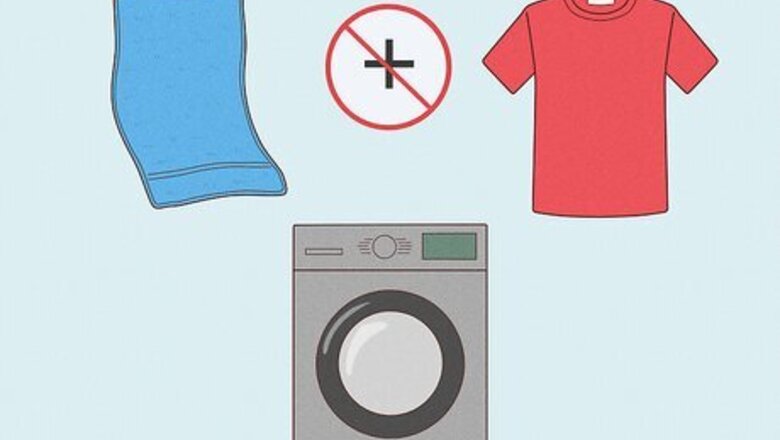
views
Is it okay to wash towels and clothes together?
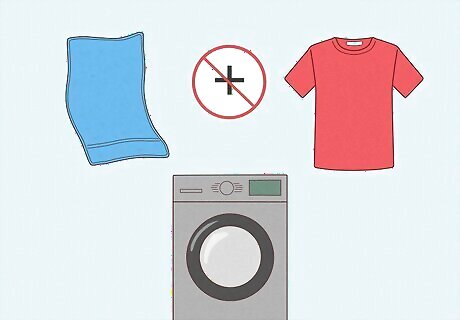
When possible, avoid washing towels and clothes at the same time. When washed together in one laundry load, bacteria from towels can transfer to your clothes. Towels need higher temperatures and longer cycles to truly kill the germs they carry, which isn't suitable for many clothes. Towels are also made of heavier, fluffier fabric, which can cause damage to delicate clothing items and leave them covered in lint. Because of all this, it’s best to wash towels separately from clothing. This goes for drying your towels, too. Clothes dry more quickly than towels do, so they may shrink in the dryer while you’re waiting for the towels to dry. The heavy fabric of towels can also damage fragile clothing pieces when they’re tumbling in the dryer together.
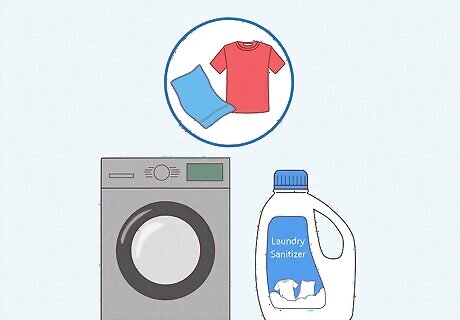
If you need to wash towels with clothes, use a laundry sanitizer. Laundry sanitizers can be added to your laundry load to kill germs and bacteria. This is a great solution if you’re short on time and need to wash everything in one load. The sanitizer will kill germs and prevent them from spreading, even if you need to use a cooler temperature setting to accommodate your clothes. Most laundry sanitizers should be added to the load during the rinse cycle, then allowed to sit for a period of time. Read the instructions on the label of your laundry sanitizer, and follow them exactly for the best results. Laundry sanitizers are bleach-free, so you can use them on colored fabrics and clothing.
Tips for Washing Towels Properly
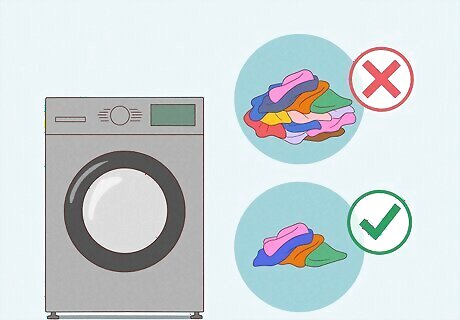
Don’t overload your washer. Stuffing your washer full of towels can prevent them from actually getting clean. When a washing machine is overfilled, the items inside can’t tumble around enough, so they don’t get washed as thoroughly. Overloading can also cause damage to your washing machine in the long run. So, if you’re contemplating stuffing that last towel or two in, it’s probably best to save them for your next load.
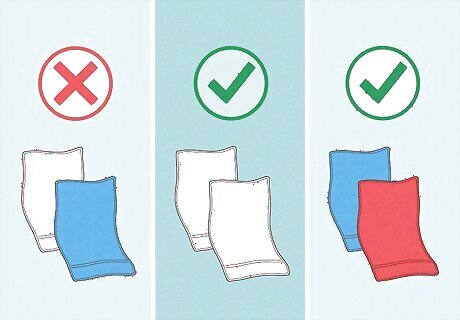
Separate white and colored towels. White towels can usually be washed in hot water, while colored towels may only be able to handle the “warm” water setting. Vibrant towels may also bleed colors onto your white towels. Because of this, it’s best to wash them separately.
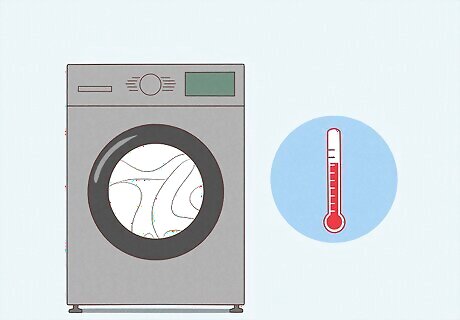
Wash on the highest temperature setting the fabric will allow. Because towels can carry a lot of germs and bacteria, it’s best to wash them in hot water. You can even add bleach (for white towels) or a laundry sanitizer (for colored towels) for some extra germ protection. Read the care label for your towels if you’re unsure about how hot the water should be. The label will also include any special instructions you might need to follow for your specific towels.
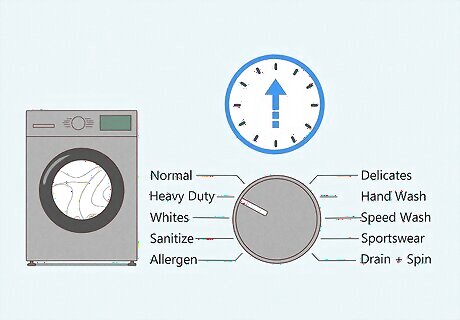
Pick a longer, heavier-duty wash cycle. If you’re in a rush, it may be tempting to use a shorter, "speed wash" cycle, but you should definitely avoid this when washing bath towels. Towels carry more bacteria and germs than regular clothing items, so they need to be washed on a more intense cycle. This is especially important if you’ve used your towels for several days without washing them.
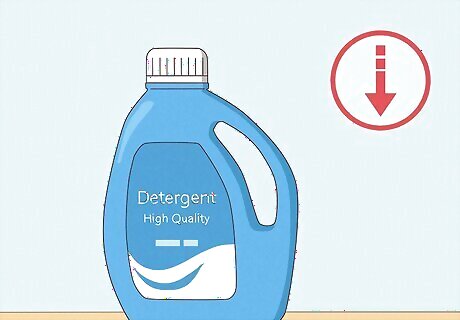
Use a high-quality detergent, but don’t use too much. “One of the main reasons towels turn hard and stiff is using too much laundry detergent,” says Rani Gorgis, laundry specialist and owner of Park Blvd Laundry & Dry Cleaners in San Diego. “So cut back on the laundry detergent, as less is more to get the soft and fluffy towel you desire.” Gorgis also explains that you can “add vinegar to the wash cycle to get all the added [detergent] residue off the towels.” A half cup of white distilled vinegar or baking soda should do the trick.
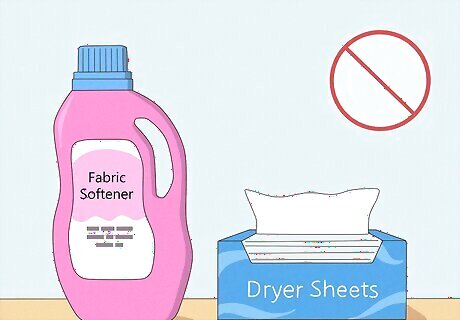
Skip the fabric softener and dryer sheets. Fabric softeners leave a thin layer of wax on clothing fibers, and this actually ends up decreasing the fluffiness and absorbency of towels. This is another reason to wash your towels separately from your clothes!
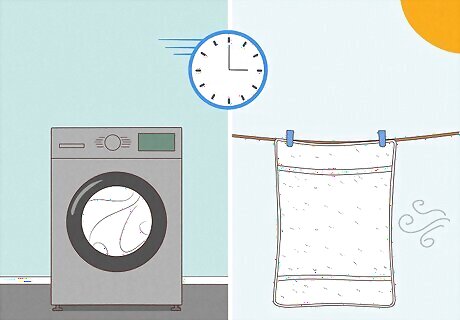
Dry your towels immediately. Don’t allow them to sit in the washer while they’re still wet—this can quickly cause mold and mildew to form. To avoid this, transfer your towels to the dryer or hang them up on your clothes line right away. If using a dryer, check the care label to find out the highest temperature setting the fabric will allow. For most towels, this is low to medium heat.
FAQs for Washing Towels
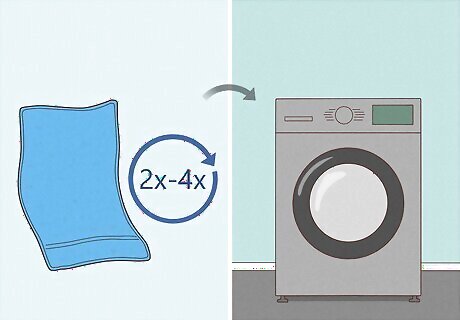
How often do towels need to be washed? Many people use bath towels several times before washing them. Unfortunately, damp towels are the perfect environment for bacteria, mold, and mildew to grow. Because of this, you should only use a bath towel 2-4 times before washing it.
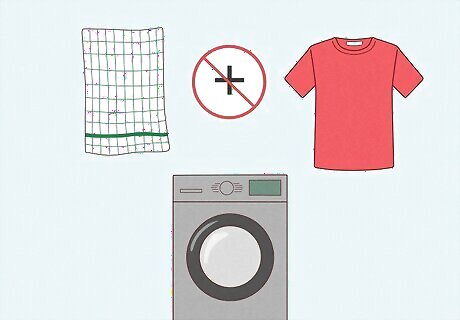
Should kitchen towels be washed separately from clothes? Yes, just like bath towels, kitchen towels and cleaning rags can harbor tons of bacteria. It’s best to wash them in hot water and long wash cycles, separate from your regular clothes.
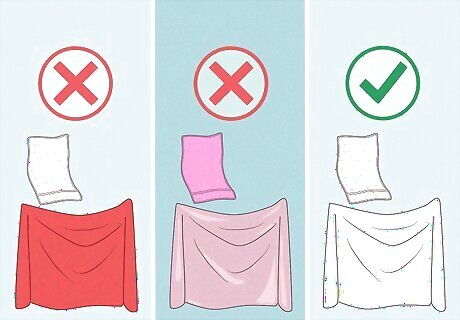
Can towels and sheets be washed together? You can wash towels and bedsheets together if they have similar colors and fabric weights. You shouldn’t wash white towels with vibrant red sheets, or heavy-duty towels with delicate silk sheets, for example. However, it's usually best to wash them separately if you have the time. This ensures that everything gets as clean as possible. Keep in mind that sheets and towels may require different dryer settings, so check the care labels before tossing them in the dryer together.
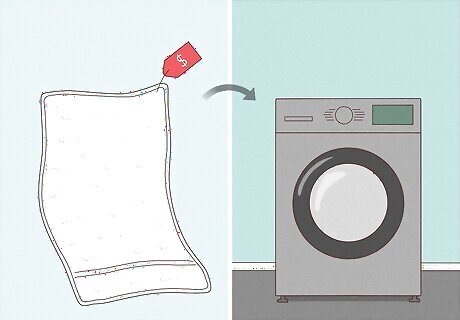
Do new towels need to be washed before use? Yes, new towels should definitely be washed before you use them. They tend to have a lot of lint, and washing them beforehand will shed this excess fluff. New towels can also carry dust and germs from whatever store they came from, so it’s always a good idea to wash them before using them to dry your body.
















Comments
0 comment